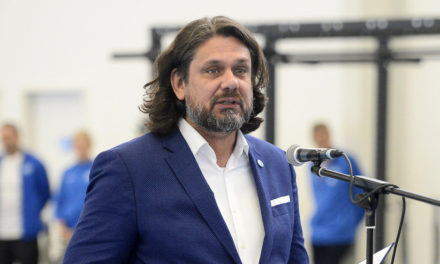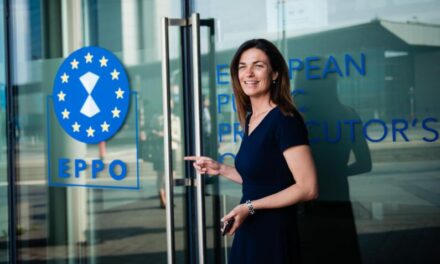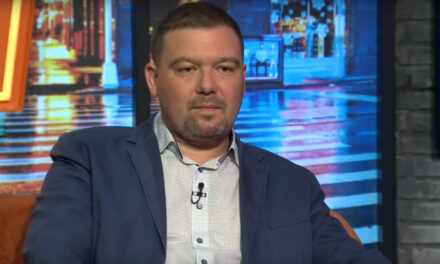In the interview, the director of the National Theater also talked about the war, the boycott of Russian artists, the upcoming Theater Olympiad, and whether the proud Hungarian destiny is a blessing or a curse.
Mandiner journalist Anita Farkas sat down to talk with Attila Vidnyánszky after the National Theatre's season-opening press conference In the interview, they touched on the cultural aspects of the Russian-Ukrainian war, the threat to the existence of Transcarpathian Hungarians, the proud and bitter Hungarian historical fate, but also the task and necessary political mission of art. Let me start with a few character statements from what was said:
– My art has always been and always will be political.
– At a free festival in a free country, anyone can openly express their opinion about us.
– We are still among the few nations that do not hide and play small.
- We don't turn a blind eye, especially when those who are bigger and apparently stronger than us do stupid things.
"Perhaps the great inner glow will consume us, and we will die sooner than those belonging to other peoples." But ultimately that's not the point.
"I don't know what the future will bring, but as long as there are half a Hungarian in Transcarpathia, nothing is lost."
***
In the new season, a Ukrainian and a Russian director will work at the National. Is the invitation of Vlad Troitsky and Valery Fokin a clear message that at least there should be peace in the theater?
I don't want to message or influence anyone with this. I think it is very important to keep our sanity in the midst of the madness that is increasingly taking over the world. And we must continue the work that we started many years ago: building our international relations with the help of culture and art, striving for mutual understanding, working with the world's most interesting and significant creators - regardless of nationality.
If you give a job to a Russian artist, at least the open letter , you are openly supporting the "Russian version of peace".
A terrible war is going on in our neighborhood, millions of people are suffering and fleeing, and at this time even the diplomats are overridden by the logic and rhetoric of war. I deeply condemn all forms of violence and it hurts terribly what is happening in Ukraine - because nothing can justify the death of people. I hope that the war will end soon and that peace can return to Ukraine. But I do not support the "Russian", "Ukrainian" or even "Hungarian" version of peace, but I want to achieve that different people, peoples and communities are able to accept each other and work together in the spirit of mutual understanding and respect. My cultural mediation activity, which I have consciously undertaken for years, is aimed, among other things, at trying to find a way out of conflict situations, and at least we do not deepen the gap, do not add to the problem.
If we too get carried away by the madness of hatred and start dancing according to the choreography of the political forces interested in maintaining the war, it can lead to even more serious consequences.
The collective, even retroactive, ostracism of all citizens of an entire culture, an entire people, is unacceptable. I firmly believe that communication should not be interrupted in the field of culture; it is precisely culture and art that help us to see the world in a nuanced way even in the darkest times, to survive any horror. Meetings must happen, even if the participants have diametrically opposed opinions on certain matters. This is the only way to have the opportunity to practice clarifying gestures towards each other, which is already the anteroom of understanding. That is why I consider it very lucky that I can live in a free world here in Hungary, where no one has a say in who I consider artistically worthy to invite to the National Theatre. Incidentally, I also told the Lithuanians this after their MITEM campaign.
As is well known, two Lithuanian theaters participated in the Imre Madách International Theater Meeting, and at the end of their performance, the actors shouted "Hungarians, don't be indifferent!" they strung up a molino with the inscription "Orbán, are you sure? A video montage with the text "Hungary 1956 – Ukraine 2022" was shown.
We knew about the actions being prepared, but we took note of them and did not prevent them from expressing their opinions. Even then, I immediately said that at a free festival in a free country, anyone can openly express their opinion about us, even if we do not agree with it.
During the last nine years, since we have been organizing this theater meeting, almost every year there have been people who wanted to teach us something.
But this is nothing new - this is how we have lived here in the Carpathian Basin for more than a thousand years: sometimes the Tatars, sometimes the Turks, sometimes the Germans, sometimes the communists, sometimes the Americans and the European politicians they control want to tell us how to live, what to think about the world. But we always knew inside: it's good for us the way we want to live, and we don't want anything to be forced on us. Behind the scenes, I just asked the artistic director of the Lithuanian National Theater: "if I were to go out to you, would I be able to speak on the stage of your theater with the opposite content?" He just listened to that. And that didn't surprise me at all. If I look at the program of Western theater and art festivals, this has been going on for years: everything that does not follow the beliefs and ideas of the mainstream is pushed out. Trendy topics, served in a trendy and uniform way - nothing else can get there, or if it does, it will be downgraded as mandatory. Compared to this, the National Theatre, and indeed the entire Hungarian cultural life, is very diverse, where many different ideas, many debates, and perceptions are present at the same time. And that's okay. We just have to be very careful to keep it that way.
The full interview HERE .
Photo: Márton Ficsor












